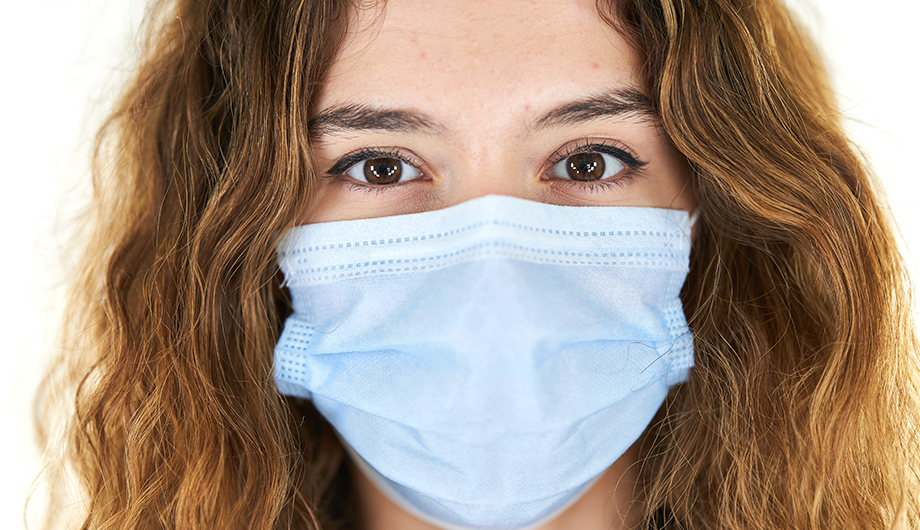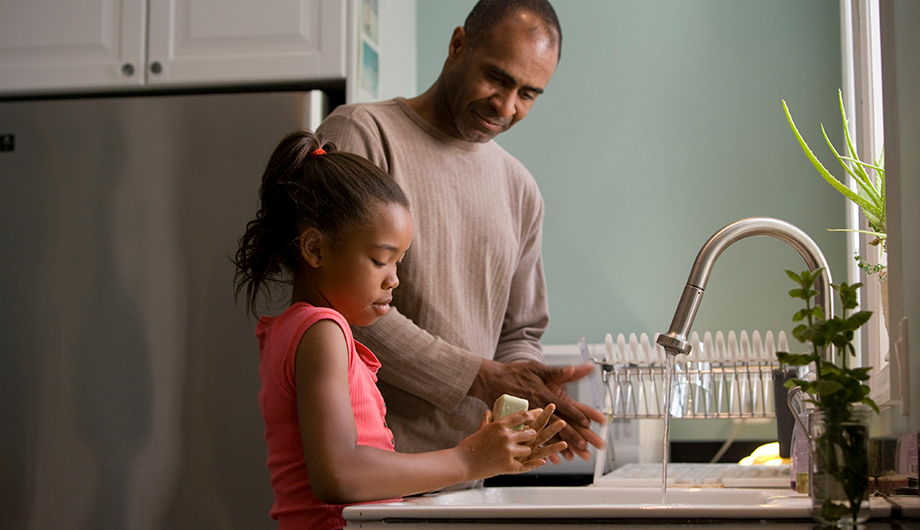
Other organisations
There is a lot of new information from different groups working hard during this pandemic. We have collated some resources from other organisations in one place.

We understand that this is a very challenging time and are working to produce resources that may provide some useful information and tips to you and your families.
We are constantly developing and updating resources, so please be aware that not all may be currently available here. Please check back regularly if you have been pinpointed to this page by another of our resources.
Click on the titles below to view the resource. You can get a brief summary of each page by clicking on the downwards arrow.
You may experience an escalation in behaviour that challenges during the time you and your family are together. If you begin to see a change in the behaviour of your relative, consult this information sheet for suggestions and tips.
If your relative has a severe learning disability and you experience an escalation in behaviour that challenges during lockdown, this information sheet deals with: how to be prepared; what to do if you see a change in behaviour; and what you need to do following an incident of challenging behaviour.
Support for people with learning disabilities to avoid spitting except in socially acceptable ways – and particularly to avoid spitting at other people.
Click on the titles below to view the resource. You can get a brief summary of each page by clicking on the downwards arrow.
Updated information about the COVID-19 vaccine and booser dose. People with a weakened immune system are being offered a 3rd dose of a coronavirus (COVID-19) vaccine. This is also known as a 3rd primary dose.
Information about the COVID-19 vaccine, in particular giving information about accessibility and reasonable adjustments for individuals with severe learning disabilities whose behaviour challenges.
Hand washing is one of the easiest ways to protect yourself and the person you support from the Covid-19 infection. However, we know that this is not an easy or simple task for many children and adults with severe learning disabilities. In this document there are some practical suggestions to make handwashing a fun activity for your loved ones as well as part of your daily routine.
This resource outlines steps that you can take to prepare in case your family member is admitted to hospital with COVID- 19, what to do if you think your family member has symptoms of COVID-19, what to do when he/she is admitted to hospital. It also covers treatment in hospital, being released, and supporting end of life.
In this document there are some practical suggestions to help when taking a person’s temperature, along with signs to look out for that may indicate a high temperature.
This resource addresses how to get good health care for someone with a severe learning disability/autism who displays behaviour that challenges, along with what to do if your family member needs non-emergency, or emergency, health care.
This information sheet describes what Learning Disability Nurses do, and how they can help with COVID-19. It also covers how you can find and contact your Learning Disability Nurse, and what to do if there isn’t one.
This information sheet includes a template letter, which has been provided to help medical staff to understand and assess a person with a severe learning disability.
Click on the titles below to view the resource. You can get a brief summary of each page by clicking on the downwards arrow.
This pack is designed to help you explain to members of the public and the police the particular circumstances that apply to your relative. It includes an A4 information sheet you can present to neighbours or the police, and information cards which can be handed to anyone who asks why your relative is not following Government guidance.
This information sheet has been produced in collaboration with family carers, barristers, care providers and other health and social care professionals to provide examples of how family contact can be facilitated, and potential risks mitigated.
This document provides a timeline of changes following the start of the COVID-19 pandemic. It has been based on the experiences of a real person, whose name has been changed.
This resource covers preparing your relative for the experience of wearing PPE, or seeing others wearing PPE, through tips and desensitisation activities.
This information sheet sets out what should be taken into account and who should be involved when making decisions about suspending or resuming activities or face to face contact for people with severe learning disabilities.
Click on the titles below to view the resource. You can get a brief summary of each page by clicking on the downwards arrow.
The contents of our first information sheet include useful tips and suggestions on setting a routine, using visual aids, special interests, fun activities, and down time.
The second information sheet in this series gets you thinking about activities to develop skills, aid communication, and connect with others. It also includes tips on going out and keeping active.
Click on the titles below to view the resource. You can get a brief summary of each page by clicking on the downwards arrow.
This document is for people who wish to inform the police about the needs of a vulnerable person before, or during, a crisis situation. It includes a template with suggestions for sharing useful information about your relative with the police.
Coronavirus and the law
COVID-19 FAQs 1 from Legal Panel
COVID-19 FAQs 2 from Legal Panel
Positively managing risk for children and adults with severe learning disabilities. Summary information about key Acts and how they are relevant to positively managing risk during Covid-19. Thank you to Doughty Street Chambers for their help putting these resources together.
Positively managing risk for children and adults with severe learning disabilities. Summary information about key Acts and how they are relevant to positively managing risk during Covid-19. Thank you to Doughty Street Chambers for their help putting these resources together.
Positively managing risk for children and adults with severe learning disabilities. Summary information about key Acts and how they are relevant to positively managing risk during Covid-19. Thank you to Doughty Street Chambers for their help putting these resources together.
Positively managing risk for children and adults with severe learning disabilities. Summary information about key Acts and how they are relevant to positively managing risk during Covid-19. Thank you to Doughty Street Chambers for their help putting these resources together.
Click on the titles below to view the resource. You can get a brief summary of each page by clicking on the downwards arrow.
This quick read challenging behaviour guide gives tips and strategies to help you and your family member during a period of new or increased challenging behaviour. It will give you a quick start to using Positive Behaviour Support principles to reduce challenging behaviour. In reality, there will be times when your best efforts cannot prevent a crisis, so there are also tips to plan how to respond.
This leaflet has been produced by Ambitious about Autism, Mencap and the Challenging Behaviour Foundation in partnership with Irwin Mitchell Solicitors, in order to increase understanding of people’s rights to be involved in ‘best interest’ decisions taken in accordance with the Mental Capacity Act.
Easy read template to guide people on the best ways to support somebody.
Support from professionals, provided by the Learning Disability Senate at the CBF’s request. This leaflet has been put together to describe how the different professions can support families and carers during the current coronavirus crisis. Each local area will have different access routes to these professionals, which may be via their GP or through direct access to their local Learning Disabilities Community Team.
An easy read guide explaining the process of getting tested.
See photographs of examples of real charts, designed to enable you to plan current and future events with your relative.
If your relative cannot consent to a COVID-19 test and you are concerned that a formal best interests decision making process might not be followed, or you might not be involved in that process, you can send this template letter to your relative’s care home manager, Social Worker or GP.
Template to create a plan for a hospital stay, outlining an individual’s situation and requirements.
Downloadable Template letter for making contact with a loved one

There is a lot of new information from different groups working hard during this pandemic. We have collated some resources from other organisations in one place.

The Government and NHS England have published a range of COVID-19 guidance. We list on this page the guidance most relevant to families of children and adults with severe learning disabilities.

The CBF is offering free peer support for family carers from your own homes during the Coronavirus pandemic. On this page you can read about 'Peer support calls' and 'Carers' Catch Ups'.